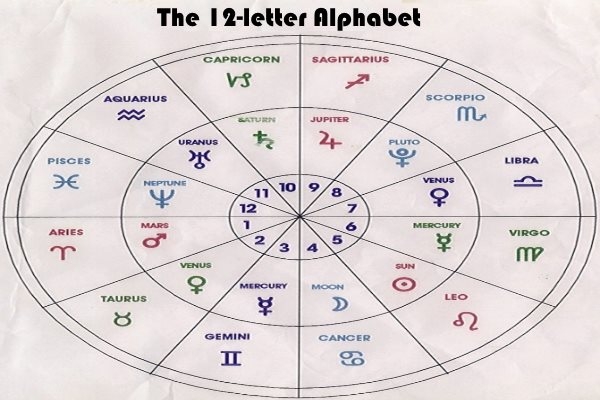1st House (Aries, Mars)
This area is critically important for interpreting an astrological chart. I always begin looking at an astrological chart by noting the Ascendant, its planetary ruler, planets in the First House, and planets closely aspecting the Ascendant degree. In natal astrology, these factors together represent the characteristic style and temperament of the native. The First House has been called the house of “life,” and issues about physical and mental health also reside in this place. In a horary chart, the Ascendant and First House signifies the person who asks a question. In an electional chart or event chart, these factors signify the initiation of an event. In natal astrology these are the first and most powerful factors to be considered, far more than the Sun sign or Moon sign.
 The wide variety of possibilities of human character and behavior cannot be “archetypically” tied to Aries or any particular sign, Mars or any particular planet. All of us have different possibilities that can be traced to different signs and planets, particularly the one that shows up in a chart – there’s no reason to call Aries the First House of the “natural houses.” Aries, as a cardinal fire sign is a natural home for Mars, emphasizes the decisive but impulsive and possibly destructive activity of Mars.
The wide variety of possibilities of human character and behavior cannot be “archetypically” tied to Aries or any particular sign, Mars or any particular planet. All of us have different possibilities that can be traced to different signs and planets, particularly the one that shows up in a chart – there’s no reason to call Aries the First House of the “natural houses.” Aries, as a cardinal fire sign is a natural home for Mars, emphasizes the decisive but impulsive and possibly destructive activity of Mars.
The cardinal fiery sign Aries and its ruling planet Mars are not always appropriate to most situations in which we find ourselves. In fact, we usually don’t burst into new things but instead we’re more likely to watch and wait and find an “in.” Mars is traditionally a “malefic” and the fiery red planet often causes people more harm than good.
Mars also has a greater range of activity than is attributed to the sign Aries: Mars is dignified elsewhere than in Aries. Assimilating the planet Mars to the sign Aries over-simplifies the complex and interesting nature of the red planet, making it appear more like an impulsive sixteen-year-old male than a planet that can work quietly and in a focused way toward a goal, as when Mars inhabits its other signs in which it has dignity.
Mercury, not Mars, is in its joy in the First House. When we consider that what we often need when meeting the world is a diverse range of responses, Mercury, not necessarily Mars, is a good planet to have in this important position.
2nd House (Taurus, Venus)
 The concerns of the Second House are straightforward but using the Twelve Letter Alphabet has made them complicated. The Second House is about money, funding, and the “substance” of the native – period. Taurus, the earthy fixed sign, is a fine place for physical pleasure and comforts and a basic kind of simplicity. (Note that Venus is its domicile ruler and Moon its exaltation.) Avarice tends to make life very complicated – but this is not Taurus! Nor should money be confused with “value” that is sometimes attributed to the Second House. The Second House is about a concern we all have in our lives that has many personal and social implications, but the bottom line is that it’s just money.
The concerns of the Second House are straightforward but using the Twelve Letter Alphabet has made them complicated. The Second House is about money, funding, and the “substance” of the native – period. Taurus, the earthy fixed sign, is a fine place for physical pleasure and comforts and a basic kind of simplicity. (Note that Venus is its domicile ruler and Moon its exaltation.) Avarice tends to make life very complicated – but this is not Taurus! Nor should money be confused with “value” that is sometimes attributed to the Second House. The Second House is about a concern we all have in our lives that has many personal and social implications, but the bottom line is that it’s just money.
As the planet of beauty and adornment, Venus is not the planet of money but of “nice stuff.” Venus is more interested in the aesthetics and style of a newly-built home rather than its display of the native’s wealth. Venus should not be confused with the financial people who brought us the Great Recession of 2008 – that’s closer to Mercury in its less appealing amoral and all-too-clever manifestations.
Instead, Jupiter is the traditional planet of wealth (and its social display) and was a signifier of the “substance of the native” along with the Second House and the Lot of Fortune.
Third House (Gemini, Mercury)
Correlating the Third House with Gemini poses less of a difficulty, mostly because the common significations of the Third House – primary school, neighbors, short trips, etc. – correspond more closely with our understanding of the sign Gemini. I am, however, bothered by the association of “lower mind” with the Third House, for this devalues mind in its operations in ordinary life.
Gemini’s and Mercury’s ranges of activity cannot be reduced to one astrological House. Likening the Third House to Mercury trivializes the planet of the marketplace, of the clever lawyer and glib politician, the person behind the “technical support” desk, and the person who organizes your wedding or funeral.
The Third House was originally that of “brothers” and was given Mars as a corresponding planet and the signification of this house as siblings has survived to modern times. Yet there is another meaning for the Third House: opposing the Ninth, this was the Place of the Moon Goddess and the Moon is in its joy here! The Third and the Ninth were both associated with dreams, prophecy, and divination.
One can trace the Moon’s interest in the Third House with the development of meaning to the present day, for it was the Moon, not Mercury that many cited as the planet governing messengers and messages—communication in general. It was probably from reading Ptolemy that the Third House received the domain of “lower education,” in his attribution of planets to stages of human development. After the first four years of life governed by Moon, in the following years of Mercury children would begin to receive their education.
4th House (Cancer, Moon)
Let’s first talk about Moon. In contemporary astrology the Moon is considered a planet of feelings and emotions (and that odd word “nurturing”), but we can go further by asking this: what are feelings and emotions for? What purposes does nurturing serve?
Feelings and emotions serve us by constantly bringing us back to our bodies and their needs, our world and its constant changes, demanding from us that we make constant adjustments to preserve homeostasis and to grow. Moon is a planet not only about the feminine but also about adaptability and change and, even more than Mercury, is the ultimate planet of mutability. Nurturing oneself or another is simply an intense form of responsiveness. The Moon’s activity is rhythmic and its essence is watery – the element water is powerful and potentially destructive but flows and accommodates. We can look at the watery nature of our bodies as lunar. In horary and electional astrology the Moon often represents the flow of time from past to future as it departs from aspecting one planet and applies to the next.
 The Moon governs Cancer, a watery but cardinal sign that is the time of the maximum amount of light in the Northern Hemisphere when the Sun is placed there, and the longest arc in the daytime when it is ascending. Cancer is a fluid but personalizing sign. Moon and Cancer are not the same as each other but they are a good fit. Cancer is a fine home base for the Moon, for there the Moon is ostentatiously emotional, or, in a man, rather moody.
The Moon governs Cancer, a watery but cardinal sign that is the time of the maximum amount of light in the Northern Hemisphere when the Sun is placed there, and the longest arc in the daytime when it is ascending. Cancer is a fluid but personalizing sign. Moon and Cancer are not the same as each other but they are a good fit. Cancer is a fine home base for the Moon, for there the Moon is ostentatiously emotional, or, in a man, rather moody.
This is very different from the significations for the Fourth House. This house is “under the earth” and is about one’s origins and foundation – home, family, and ethnicity. It was originally the Place of the Father, for that is how the family name and property were passed along in traditional Western cultures. Moderns can certainly add mother into the mix, if in keeping with the Fourth House and one’s “homeland” roots and to reflect greater gender equality than in the traditional cultures in which astrology operated. None of this – foundation – is Moon or Cancer, however.
5th House (Leo, Sun)
This one bothers me, almost as much as affiliating Saturn and Capricorn with the Tenth. “Letter Five” distorts the Fifth House, Sun, Leo, and the creative processes all in one ill-considered move.
 As it is in trine to the sign of the Ascendant, the Fifth House has always been considered a fine place but has had conflicting significations as the place of children and pleasurable activities. To attempt to bring pleasure and children together under the heading “creativity” does not solve the problem.
As it is in trine to the sign of the Ascendant, the Fifth House has always been considered a fine place but has had conflicting significations as the place of children and pleasurable activities. To attempt to bring pleasure and children together under the heading “creativity” does not solve the problem.
The Fifth House is a place of entertainment, hobbies, even what we call “love affairs” (although that’s a newer signification). Of the Twelve Houses, the Fifth House is surely the “party house”. To nobody’s surprise, then, the benefic Venus is the planet whose “joy” is in the Fifth House. Venus is the planet of pleasure and amusement and a “good time”, possibly rendering a Venus-like person shallow but fun to be with. Not surprisingly the Fifth House was called the Place of “Good Fortune. Its emphasis on pleasure renders the Fifth more a conformist than creative place – what feels good is what you do.
This is not the Sun, who is the maestro of the Solar System and the astrological planet that brings us a sense of ourselves that radiates onto the larger world. Sun represents our qualities of leadership and our fame and reputation, also the bright light of intellect. Sun cannot also be about “hobbies” and entertainment and “love affairs”, for these all lack a profundity that is solar.
Is the Sun the planet of creativity? Yes, if we do not confuse creativity with talent, for there are many people who are talented in an area but do not approach it creatively. Instead, creativity is the ability to see situations uniquely, “out of the box”, and thus think and act unpredictably. I remember a cartoon in Kurt Vonnegut’s Breakfast of Champions many years ago: on a gravestone were engraved the words, “Even the Creator of the Universe Didn’t Know What This Man Would Say Next.” One can even say that creativity is the essence of our being human.
Creativity is not the result of being eccentric but from shaking off our “mind-forged manacles” of unreflective thinking, perhaps a mind focused on doing or saying what feels good right now. I would never give creativity to the Fifth House, the “party house”.
6th House (Virgo, Mercury)
The Sixth Souse is cadent and unconnected to the Ascendant; it thus signifies some of life’s difficulties and one of them is sickness. Another is slavery, servitude, or what today we might call “employment” (especially in less skilled jobs at present in the United States).
There’s nothing sickness-oriented about Virgo, although there is plenty about Virgo, and its ruling sign Mercury, that can be about health. These are the familiar associations of Virgo with a healthy lifestyle, diet and exercise and natural remedies, and the like. This fits well with Virgo being earthy and mutable. These are not Sixth House matters but bring us, instead, back to the First House.
 As befitting astrology’s historical place serving the “one percent”, the Sixth House was about one’s potentially untrustworthy servants or (in ancient times) slaves. Today we can call this the “day job.” Because the Sixth House is in a trine relationship with the Tenth, it was also used as a vocational indicator. Modern astrologers tend to look at the Sixth as being an “employee”, distinguished from a prestigious “career” that is the Tenth.
As befitting astrology’s historical place serving the “one percent”, the Sixth House was about one’s potentially untrustworthy servants or (in ancient times) slaves. Today we can call this the “day job.” Because the Sixth House is in a trine relationship with the Tenth, it was also used as a vocational indicator. Modern astrologers tend to look at the Sixth as being an “employee”, distinguished from a prestigious “career” that is the Tenth.
The modern signification of the Sixth House as the “daily grind” – not our morning coffee – seems appropriate, since it was the slave or servant or (too often) the modern employee who is often assigned tasks that are tedious or mind-numbingly repetitive and brainless. Yet none of this is Virgo or Mercury.
Mars is in its joy in the Sixth. This was the House of “Bad Fortune” and, looking at Mars positively here, we often need Mars to help us climb out of our misfortunes – even though Mars may have caused some of them.



